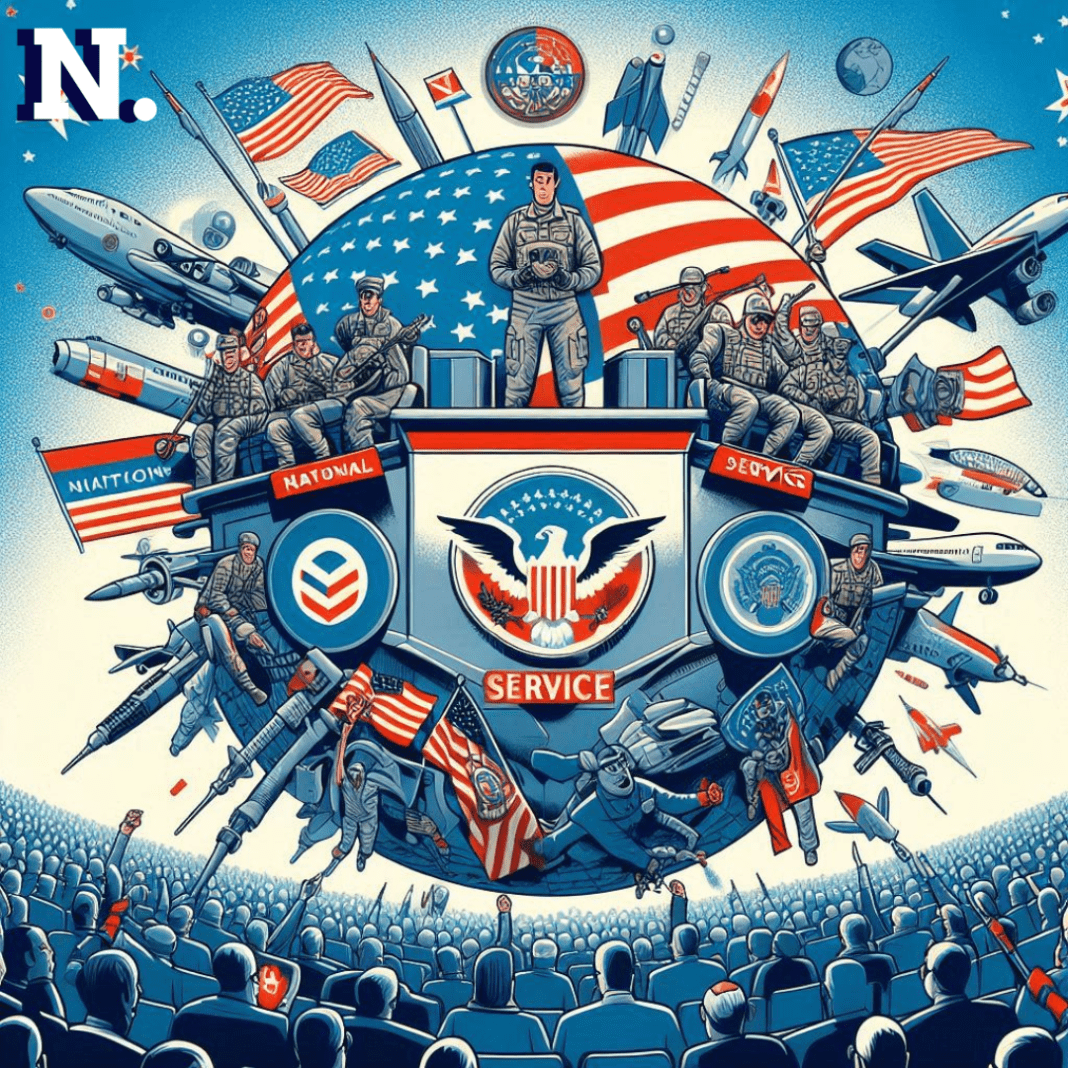What probably must have been a surprise to many, now the ghost of conscription has invaded the political rhetoric of America, making an already hot election season even hotter. Christopher Miller, the former under secretary for defense to American President Trump, has been touting the need for a return to national service programs with the aim of making angels across America more prepared to take new challenges regarding what he referred to as “great-power competition.”
Miller’s proposal does not actually favor the reinstatement of the draft in its classical sense; still, behind it lies a more general call for compulsory national service which would extend beyond military enlistment. If a plan floated by Miller and this time begrudgingly endorsed by some elements. Of the otherwise generally conservative Heritage Foundation materialized, high school students. Would reportedly given aptitude tests to establish their potential usefulness to the military-in other words, to increase the penetration of military recruiting.
NATO’s National Service Reinstatements
However, President Trump has flatly denied the reinstatement of drafts in case of his re-election to office, terming such reports as “completely untrue.” Some other Republicans, though like Senator J.D. Vance have come out publicly to make a case for some type of national service. Hoping it will bring about the sense of civic duty and national unity that young Americans seem to lack.
A House of Representatives-sponsored bill, controlled by Republicans, has fanned the move further for. Automatic enrollment for young men between the ages of 18 and 24 in the Selective Service. The larger package, a part of the National Defense Authorization Act, faces staunch opposition in the already Democrat-controlled Senate. Underscoring deep political fractures on the subject.
Other NATO countries, such as Latvia, have already returned to drafting people into military service in response to intense regional tensions coming from Russia. The same can be said for Germany and the United Kingdom, although at different levels of political point and potentiality due to logistical issues and evolving military strategies.
National Security Concerns
For instance, some critics have argued that the practical challenges, or constraints, to the reimplementation of conscription in Western democracies are many: overstretched military infrastructures, shifting geopolitical priorities, and the degree to which it can meet modern-day military challenges, such as cybersecurity and asymmetric warfare, is contested among military strategists and policymakers.
That conscription has again become a topic for debate speaks to broader anxieties over military preparedness in the face of global instability—from the actions of Russia against Ukraine to Western militaries struggling with recruitment and retention in the United States and the United Kingdom within the past years, despite financial incentives and other recruitment drives.
Proponents of national service argue that it can be a critical tool in ensuring the readiness of a resilient and resourceful military force. Opponents caution against the social and economic disruptions of the policies, notably within societies wherein military service has traditionally depended on volunteerism.
Conclusion: Trump’s Denial and Republican Divides
Although the debate over conscription has resurfaced—by all accounts currently denied by President Trump and receiving mixed support within the Republican Party—this could be a defining moment in discussion about national service and military preparedness in the United States. Proponents argue that having a structured national service program could potentially improve both national unity and military readiness in the face of changing global threats and geopolitical tensions. However, opponents also direct attention to the potential logistic headaches and social disruptions that such policies could involve, particularly within societies used to a volunteer military process.
Beyond the U.S., some NATO allies have already recommenced conscription as a response to regional security concerns, further muddying the waters in terms of global discourse relating to military manpower. As security paradigms in the world change and new threats come to the fore, so too does the debate on conscription erupt furiously to shape future political agendas and military strategies in the face of ever-complex geopolitical landscapes.





